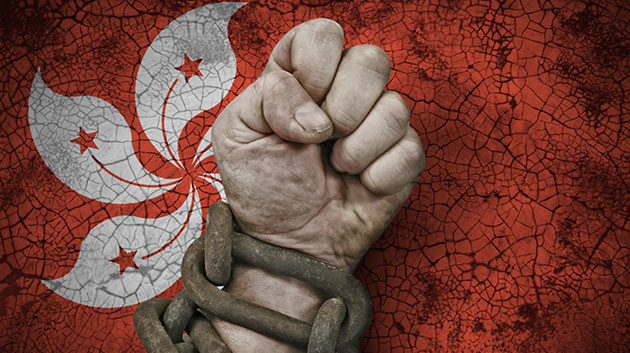“Attack on Titan” A True Story
The People of Hong Kong Lose Election Rights
Key points in this article:
- Japanese animation series “Attack on Titan” is about to air its second season
- The Hong Kong Chief Executive election on 26 March ends in loss of freedom
- People of Hong Kong see parallels in their lives to the story of “Attack on Titan”
“100 years ago, human were nearly exterminated by titans.
A small percentage of humanity survived by building three layers of giant walls. The people forgot about the titans and enjoyed a brief period of peace.
But suddenly one day, a titan appeared and destroyed the wall. Humanity was remembered once more, that they were caged birds.”
Thus begins the story of Japanese manga and anime series “Attack on Titan”: a story about the battle between humans and titans. It has become a great hit since its serialization began in 2009 in the Weekly Shonen Magazine. It was already made into anime and a live-action film, the former getting a second season commencing 1 April.
The people of Hong Kong responded to this story with great empathy.
Hong Kong and the Protective Wall
Hong Kong was originally a British colony. They managed to free themselves from communist rule, albeit under occupation, and were able to attain a degree of prosperity through freedom of economic activity. But in 1997, Hong Kong was returned to China. They lost their first “wall” – Britain – that had hitherto protected them from the Communist Party of China.
Hong Kong negotiated an agreement with China that “for 50 years, Hong Kong will remain free of socialist policy”. They were meant to enjoy a brief period of freedom until 2047.
But with 30 years of freedom left from the promise, Hong Kong’s “wall of freedom” is crumbling fast.
For instance in 2012, under pressures from China, the Hong Kong government decided to start using a pro-Communist Party ‘patriotic education’ textbook in schools. Many people of Hong Kong protested against this, including student groups.
In 2016, people from Causeway Bay Books who published a book criticizing Xi Jinping, Chairman of China, disappeared. It was a clear sign of their rapidly diminishing freedom of publication and the intrusion of Communist tyranny.
On the 26th of March 2016, Hong Kong held their Chief Executive election to decide their leader, and Carrie Lam, the previous government’s number-two person, was elected. She is a politician supported by the Beijing government.
The Chief Executive elections are held by the electoral committee consisting of 1,200 industry leaders and members of the council. The problem is that the vast majority of the committee was pro-China, and the people of Hong Kong have declaimed against its lack of democracy and representation.
When the Beijing government decided Hong Kong’s electoral system, the people of Hong Kong rallied in the name of democracy. This has come to be known as the Umbrella Revolution of 2014.
Hong Kong sees China as the “Titans”
China destroyed Hong Kong’s “wall of freedom”, and now they have to face the reality that they were only enjoying a “brief period of freedom”. They see themselves and their situation reflected in the characters of “Attack on Titan”.
Needless to say, the anime became hugely popular in Hong Kong. Politicians and activists have made parody videos with the Communist Party of China replacing the titans, to lash out against the Party authorities.
The 2013 protests gathered attention in Japan when people held up a parody placard written “Attack on the Communist Party”.
Beijing Government Fearful of “Attack on Titan” Megahit
“Attack on Titan” also became a hit in other parts of the China region, and the government is not happy about it.
The planned screening of the live-action film version in the Shanghai Film Festival 2015 was cancelled last minute due to its “material supportive of violence and acts of terrorism”. Obviously, that wasn’t the real reason.
In China, films that may have a negative effect on the current government system are thrust under information regulations. In the past, the James Cameron film “Avatar” was prohibited because the government feared that the viewers might liken the ‘colonizing characters’ to the government.
The backdrop of “Attack on Titan” was so close to their reality that the Beijing government is not looking forward to the second installment of the anime series. Those watching now have something extra to look forward to.



















